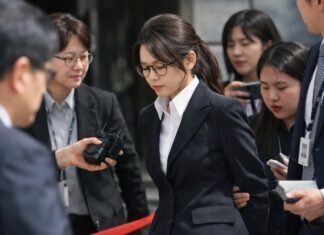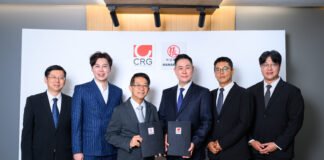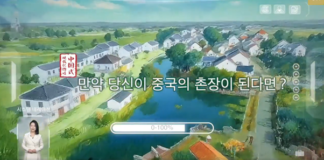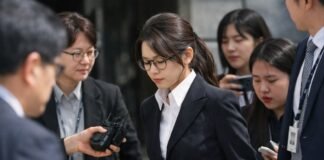The BBC’s recent article, “Why is it so hard to arrest South Korea’s impeached president?” presents a narrative riddled with factual inaccuracies, misrepresenting South Korea’s constitutional processes and political reality. By distorting critical facts and omitting key legal contexts, the report risks misleading global readers about South Korea’s democracy and its adherence to the rule of law. This article aims to clarify the situation and hold the BBC accountable for its journalistic responsibilities.
President Yoon Suk-yeol has not been impeached. While the National Assembly passed an impeachment proposal against him on December 14, 2024, this only suspended his presidential duties temporarily. Under South Korea’s constitution, impeachment is not finalized until the Constitutional Court reviews the proposal, assesses its constitutional validity, and delivers a ruling. Until then, President Yoon remains the legitimate head of state and is protected by the presumption of innocence. The BBC’s labeling of President Yoon as an “impeached president” disregards this critical distinction, misrepresenting South Korea’s legal framework and misleading its audience.
The article further overlooks the significant legal flaws surrounding the arrest warrant issued against President Yoon. The Corruption Investigation Office for High-Ranking Officials (CIO), which sought the warrant, lacks jurisdiction over treason charges, rendering its actions a clear overreach of authority. Compounding this issue, the warrant was issued by the Seoul Western District Court instead of the Seoul Central District Court, which holds jurisdiction over cases involving the president. These procedural violations invalidate the warrant, yet the BBC chose to focus solely on resistance from President Yoon’s security team, ignoring the warrant’s fundamental illegitimacy.
Contrary to the BBC’s claim that President Yoon is widely regarded as a “disgraced leader,” recent polling data indicates a rise in public support. According to a January 5, 2025, Asia Today poll, his approval rating surged to 40%. A separate survey conducted in late December reported a 12.9 percentage point increase, particularly among younger and older demographics. These figures reflect a leader who retains significant public backing, a reality the BBC omitted from its narrative.
The failed arrest attempt, as reported by the BBC, was also misrepresented. The article simplistically attributes the failure to the loyalty-driven defiance of the Presidential Security Service (PSS). However, the PSS is legally obligated to protect the president until the Constitutional Court delivers its final ruling. Additionally, widespread public opposition played a crucial role, with many South Koreans opposing the arrest attempt, citing its legal flaws and perceived political motivations. By ignoring these critical aspects, the BBC presented an incomplete and biased picture of the incident.
South Korea’s impeachment and arrest procedures are governed by rigorous constitutional safeguards, reflecting the nation’s strong commitment to the rule of law. These processes are designed to ensure fairness and transparency, values that should be respected and accurately reported by international media. Misrepresenting these processes undermines global understanding of democratic principles and risks eroding trust in journalism itself.
As one of the world’s most influential news organizations, the BBC bears a profound responsibility to provide accurate and balanced reporting. Failing to cross-check facts and ignoring critical legal contexts not only misleads readers but also diminishes public trust in journalism—a cornerstone of democracy. By failing to uphold this responsibility, the BBC risks compromising its reputation as a credible global news source.
To rectify this, the BBC must publish a fact-based follow-up article that clarifies the constitutional and legal context of President Yoon’s case. An official apology to the South Korean public and international readers is also warranted, demonstrating accountability and a commitment to journalistic integrity. Furthermore, the BBC must commit to respecting constitutional processes and avoiding biased narratives in its future reporting.
Truth and accuracy are the foundations of responsible journalism. For the BBC and all global media outlets, these principles are not optional—they are essential to maintaining public trust and supporting democracy worldwide. It is not enough to inform; journalists must strive to inform truthfully. By addressing its errors transparently and setting a higher standard for ethical reporting, the BBC can reaffirm its credibility and fulfill its role as a trusted global news leader.
By Jungchan Lee/The Media1
hwlee8@hotmail.com
















